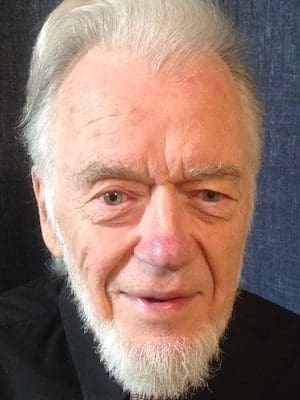Christians are often unsure about the appropriate relationship between religion and politics.
Recently, I have been reading and thinking about their interplay, and two devout Episcopalian lawyers have been helpful in this regard.
William Stringfellow graduated from Harvard Law School in 1956. He soon moved to a tenement in Harlem, New York City, where he worked as a tireless advocate for racial and social justice.
Then, in 1967 he moved to Block Island, Rhode Island. He lived and was an active member of the Episcopal church there until his untimely death in 1985.
Back in September, I reread “An Ethics for Christians and Other Aliens in a Strange Land,” the thought-provoking book by Stringfellow, who was a lay theologian and a stimulating author.
Stringfellow’s book was first published in 1973 during the Nixon administration, but it seems very relevant to the present situation in the U.S. under the current occupant of the White House.
“Biblical politics” is the title of the first section of the first chapter in which he declares, “The biblical topic is politics.”
And then he continues with this long, significant sentence: “The Bible is about the politics of fallen creation and the politics of redemption; the politics of the nations, institutions, ideologies and causes of this world and the politics of the Kingdom of God; the politics of Babylon and the politics of Jerusalem; the politics of the Antichrist and the politics of Jesus Christ; the politics of the demonic powers and principalities and the politics of the timely judgment of God as sovereign; the politics of death and the politics of life; apocalyptic politics and eschatological politics.”
How’s that for a weighty sentence?
The year of 1963 was a very special one for John Danforth. That was the year he graduated from both Yale Divinity School and Yale Law School as well as the year he was ordained as an Episcopal priest and admitted to the bar.
Danforth practiced law for a while but then became a politician, serving as the attorney general of Missouri (1969-1975) and then as a U.S. senator from Missouri (1976-1995).
In September, I also read Danforth’s 2015 book, “The Relevance of Religion.”
In his first chapter, Danforth sets forth “four broad principles” for how religious people ought to relate to politics: “(1) We should insist that politics remain in its proper place. It is not the realm of absolute truth and it is not the battleground of good and evil. (2) We should be advocates for the common good. (3) We should be a unifying force, working to bind America together. (4) We should advocate political compromise and make the case that the spirit of compromise is consistent with our faith.”
Danforth’s emphases on compromise, on working with those with different ideas, on listening to others and not idolizing one’s own position are good, important ones; they are attitudes and actions I wish more Washington politicians would put into practice today.
For “professional” politicians, Danforth’s position is a good one, as I have just indicated. But for those of us who are not politicians, perhaps Stringfellow’s position is more helpful and challenging.
There are those, including many Christians, who say they don’t want to be involved in politics – and most won’t be in the way that Danforth was.
But people of goodwill, perhaps especially Christians, should be involved in politics the way Stringfellow suggests.
When I wrote last November about being a one-issue voter (see here), I was writing about being involved in politics in the way promoted by Stringfellow.
Jesus said, “Seek first God’s kingdom and God’s justice” (Matthew 6:33). We can’t do that without being active in politics.
Leroy Seat was a missionary to Japan from 1966-2004 and is both professor emeritus of Seinan Gakuin University and pastor emeritus of Fukuoka International Church. A version of this article first appeared on his blog, The View from This Seat, and is used with permission. You can follow him on Twitter @LKSeat.
A missionary to Japan from 1966-2004, he is both professor emeritus of Seinan Gakuin University and pastor emeritus of Fukuoka International Church.

